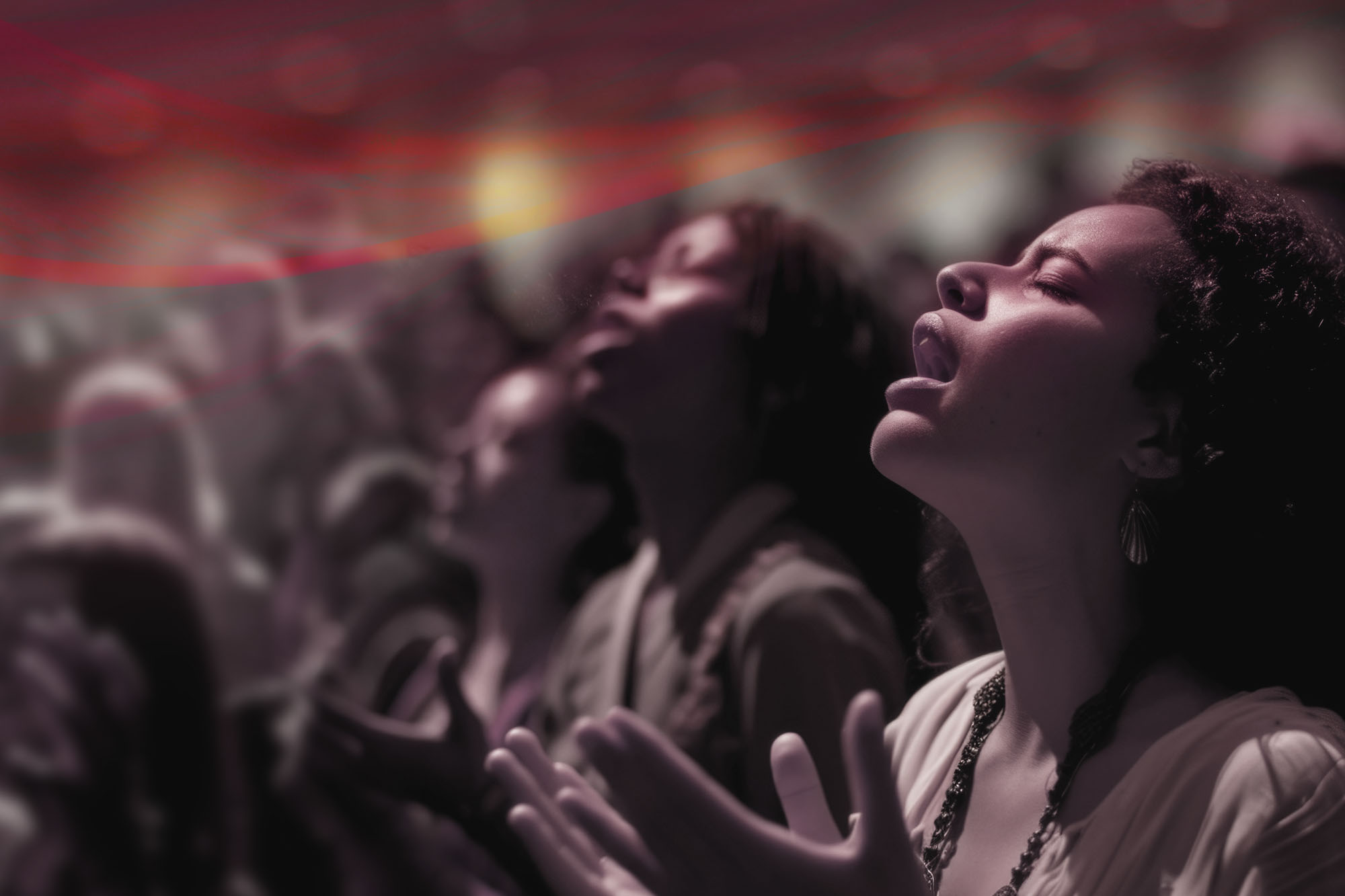In the Room Where It Happens
by Guest

Rediscover the communal power of the Holy Spirit.
A few things may capture our attention as we read about the Pentecost account from the Bible in the Book of Acts, Chapters 1 and 2. What we notice might cause us to pause and reconsider our approach as we seek a deeper, fuller, and wider experience of His Holy Spirit.
Both in speech and in song, much of the language of our worshiping communities has become very private. Count the words I, me, and my in a typical gathering with other believers—what might the tally be?
In Acts, Chapters 1 and 2, the words they and them set the tone for the anticipated arrival of the Holy Spirit. The number of times is significant; the word choice is intentional and instructive, especially in the context of our individualized world.
It’s mentioned that 120 people gathered in the upper room (Acts 1:15). Fewer than 20 are named or alluded to indirectly. When the Holy Spirit enters that space, the Bible uses communal language toward the anticipating saints (Acts 2:1–4*): “It filled the whole house where THEY were sitting.” “There appeared to THEM tongues as of fire … they rested on each one of THEM.” “THEY were all filled with the Holy Spirit … the Spirit was giving THEM utterance.”
We can be encouraged to seek a deeper abiding of the Holy Spirit as we retreat to our prayer closet (or recliner!). Individually we cry out to Him for a deeper, fuller, and wider filling—but we must never forget nor neglect the multiplying power of the Holy Spirit when encountered in community with other believers.
All together now
Acts 2:6 says, “And when this sound occurred, the CROWD CAME TOGETHER, and were bewildered because each one of them was hearing them speak in his own language.”
From one (individual tongue of fire to every sitting believer!) to the 120 to the world—their experience of the Holy Spirit naturally and organically spread to the larger community surrounding them.
How might this change how we see the goal, purpose, and intention of our worship gatherings? They’re not meant to be seen solely as an injection of the Holy Spirit to get us through the week but as an infilling to attract the world. It is an experience for us to share with others. The worship experience is more than an emotional high that might correspond with how we feel in the moment, like seeing our favorite performer in concert. The experience of true worship through the Holy Spirit is long-lasting.
Take a moment and track the reactions of the crowd that gathered on the doorstep of the upper room (Acts 2:6–13). They were “bewildered,” “amazed,” “astonished.” There was “great perplexity,” yes, and even “mocking.” We are given the nationalities but not the crowd size. One would guess it was substantial. What brought about this range of emotions was nothing less than the people of God, 120 in number, in community, filled with the Holy Spirit and “speaking of the mighty deeds of God” (Acts 2:11).
Thank you for sharing
There is nothing to fear as we ask the Holy Spirit, both personally and corporately, for a deeper infilling of Himself! Our Pentecost brothers and sisters experienced the wind of the Holy Spirit without being knocked off their feet. They experienced the fire of the Holy Spirit without any first-degree burns—and so can we. I invite you to join the last day’s prayer of Peter from Acts 2:17–21, taken from the prophet Joel, as your own. Perhaps you can share it in community as you sit and wait. ‘And it shall be in the last days,’ God says, ‘That I will pour forth of My Spirit on all mankind; And your sons and your daughters shall prophesy, And your young men shall see visions, And your old men shall dream dreams; Even on My bondslaves, both men and women, I will in those days pour forth of My Spirit And they shall prophesy. ‘And I will grant wonders in the sky above And signs on the earth below, Blood, and fire, and vapor of smoke. ‘The sun will be turned into darkness And the moon into blood, Before the great and glorious day of the Lord shall come. ‘And it shall be that everyone who calls on the name of the Lord will be saved.’
SLD Resource: Waiting
Our lives are filled with moments of waiting. Some can be routine, like waiting in line at the drive-thru or checking out at the grocery store. Other times, there can be deep emotions attached, such as when we’re waiting for test results or to hear about an outcome out of our control. Extended waiting periods can cause us to be restless, impatient, or anxious. It’s all in how we experience the waiting that matters.
It might not change the outcome, but it can change how we enter the waiting period. This resource is a guide to identifying how God patiently waits with you and how to surrender, let go, and give yourself space in the waiting. No matter the scenario, there are ways to be present while waiting. It won’t look the same for each person or for each experience. But we can learn to acknowledge and live consistently, trusting God to be present while waiting.
Get your copy of Waiting at sld.saconnects.org.
by Major Phil Wittenberg, territorial secretary for Spiritual Life Development

